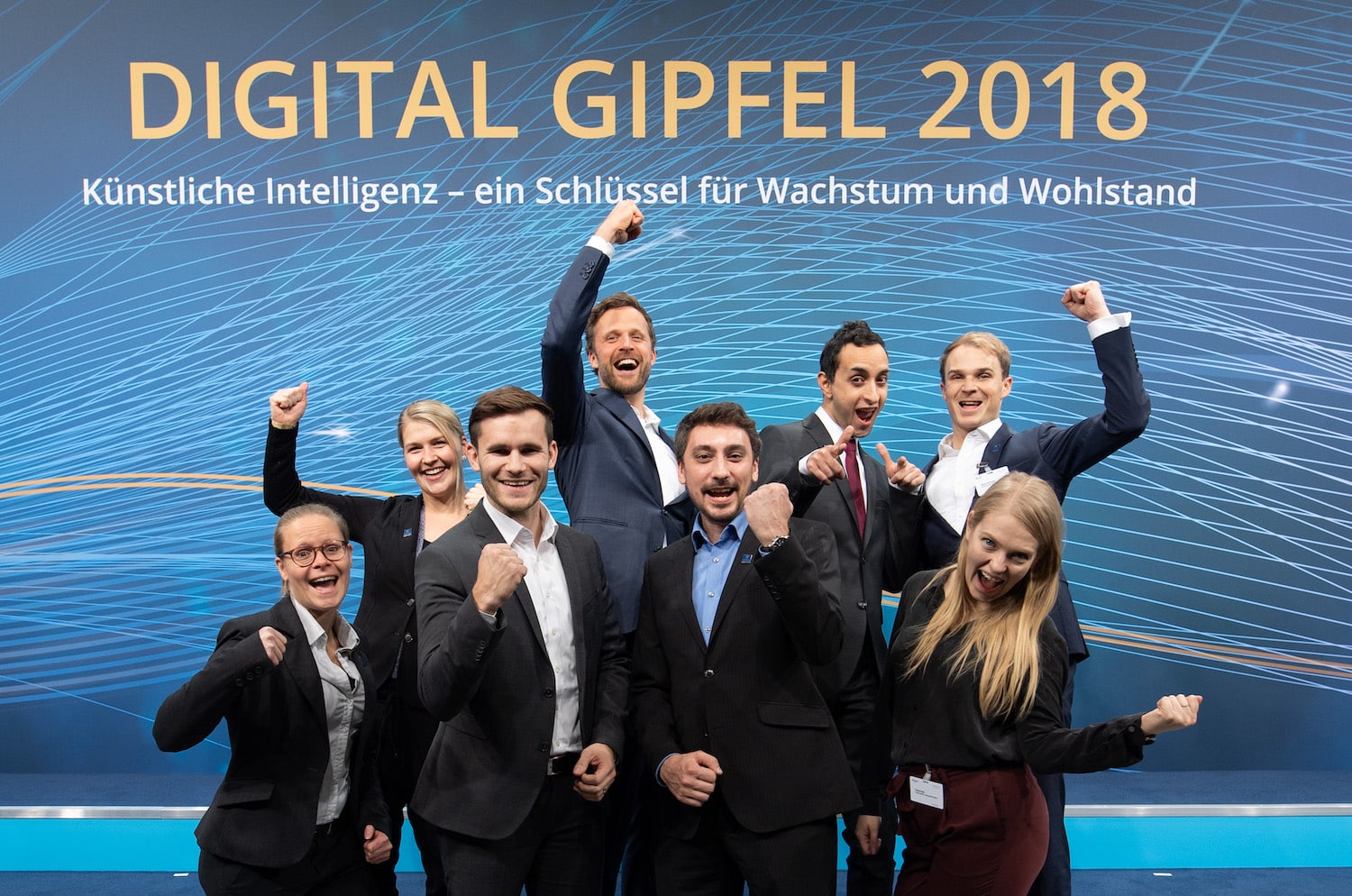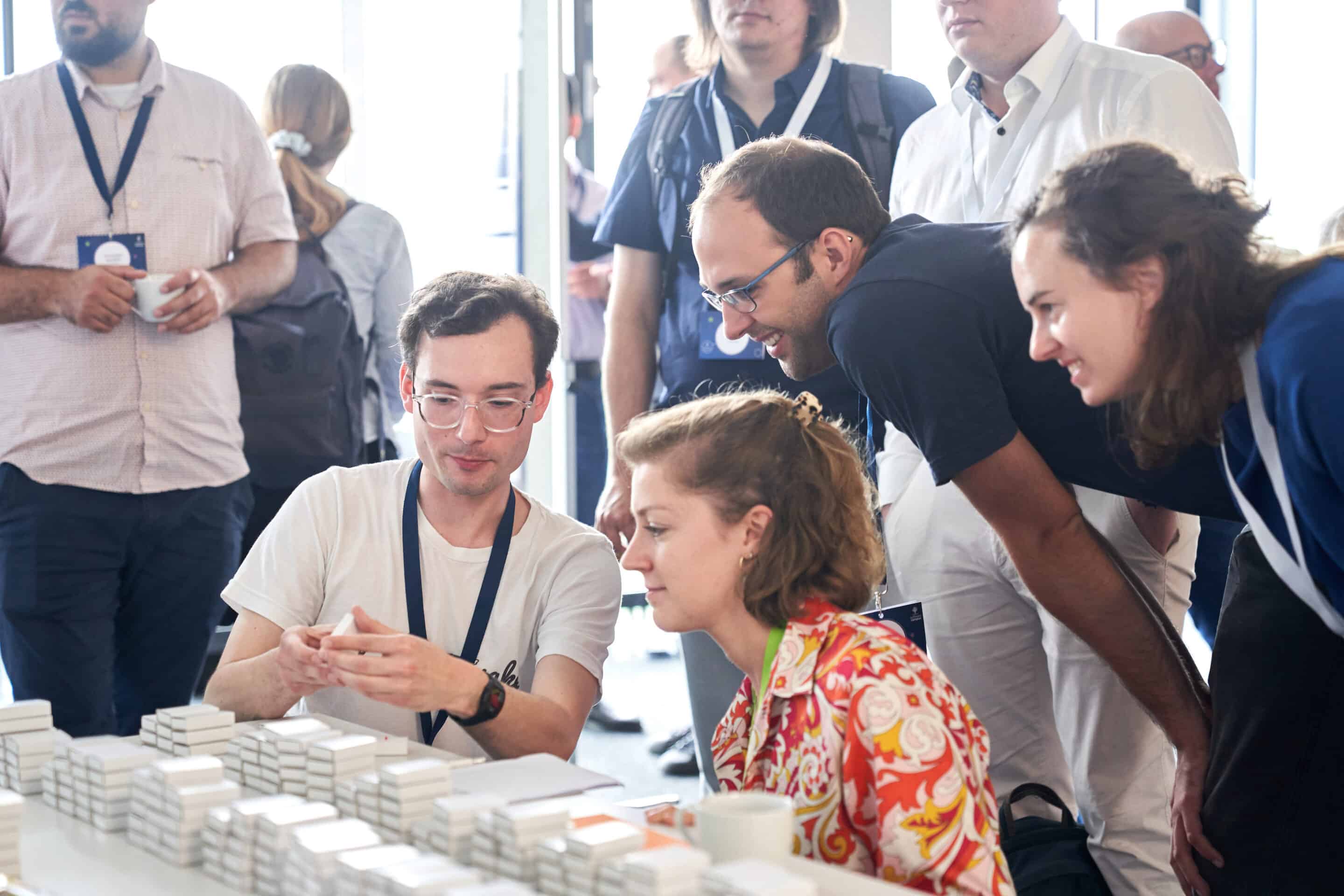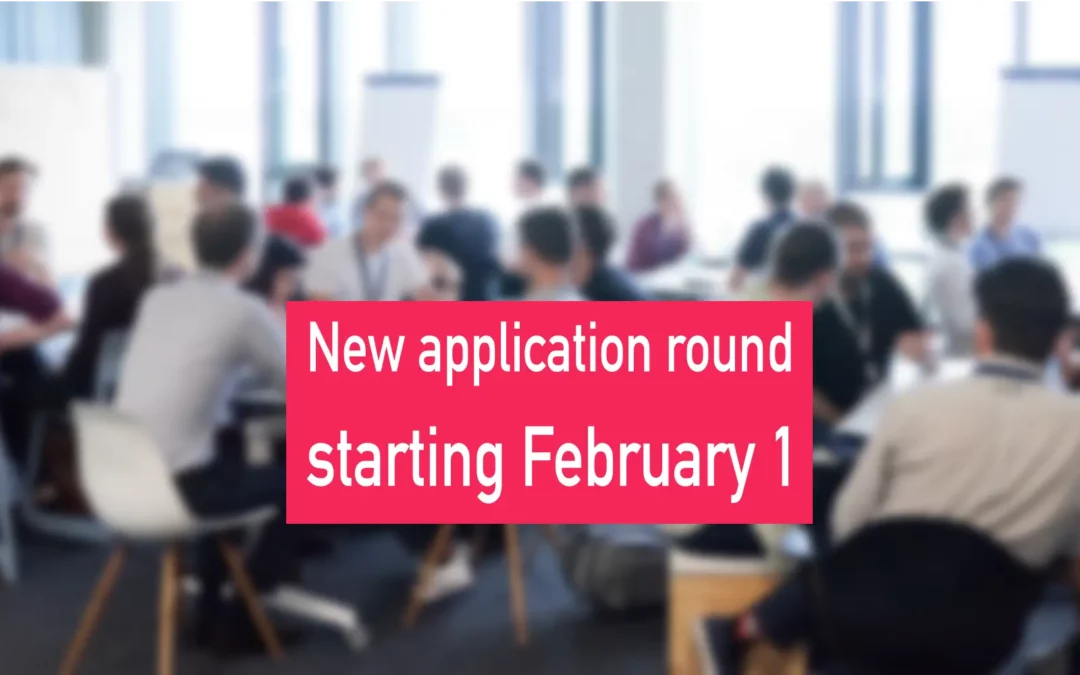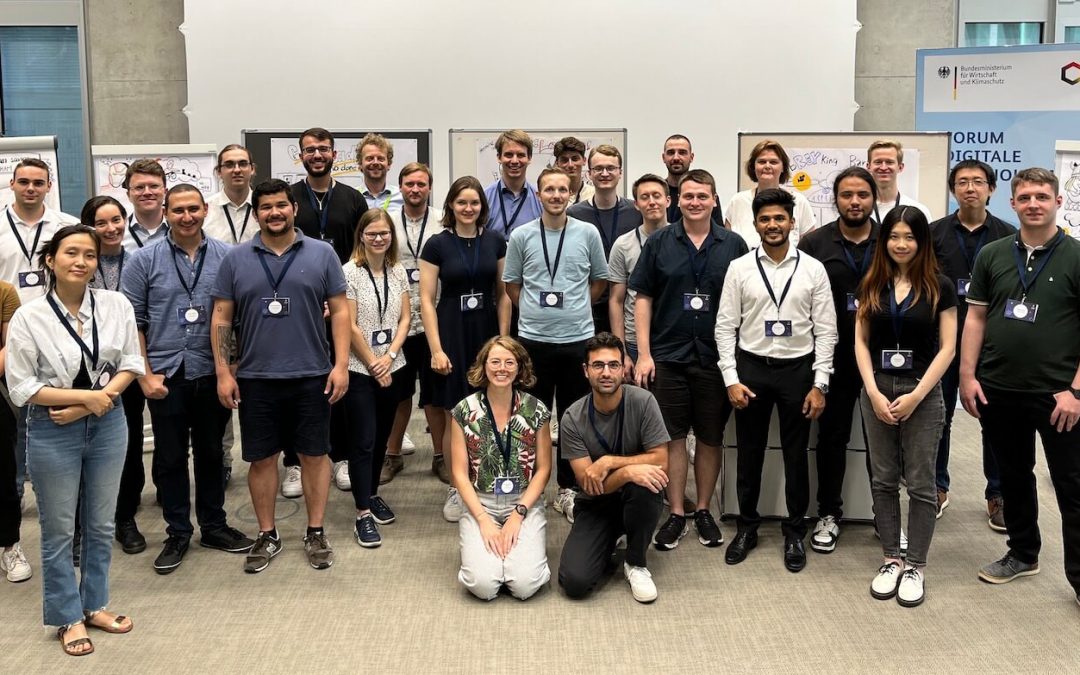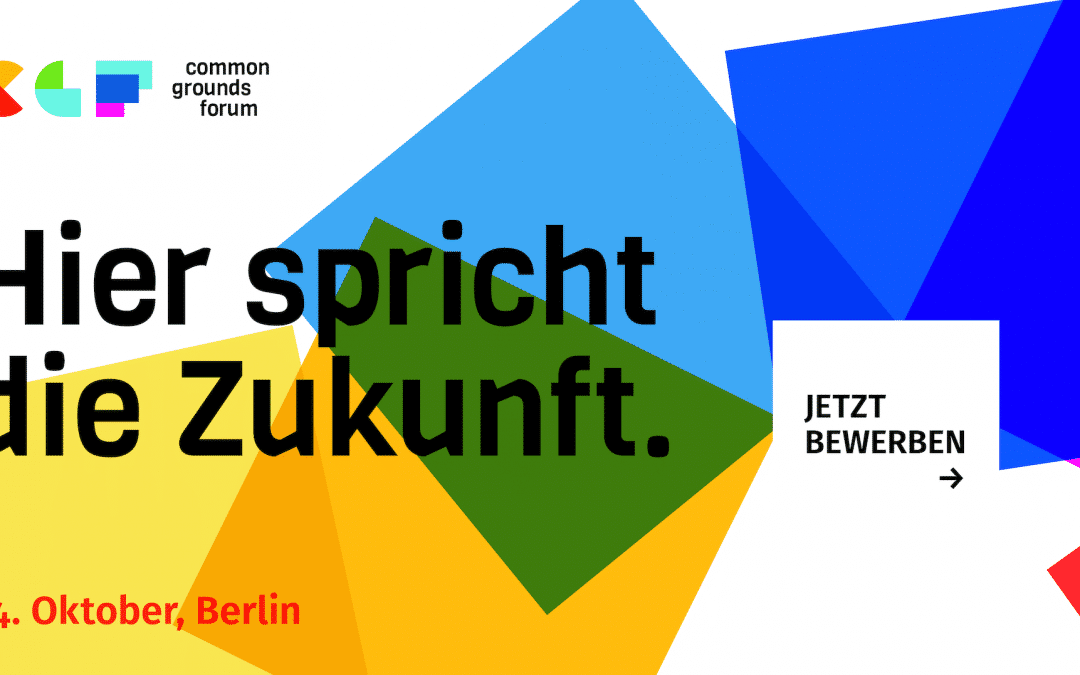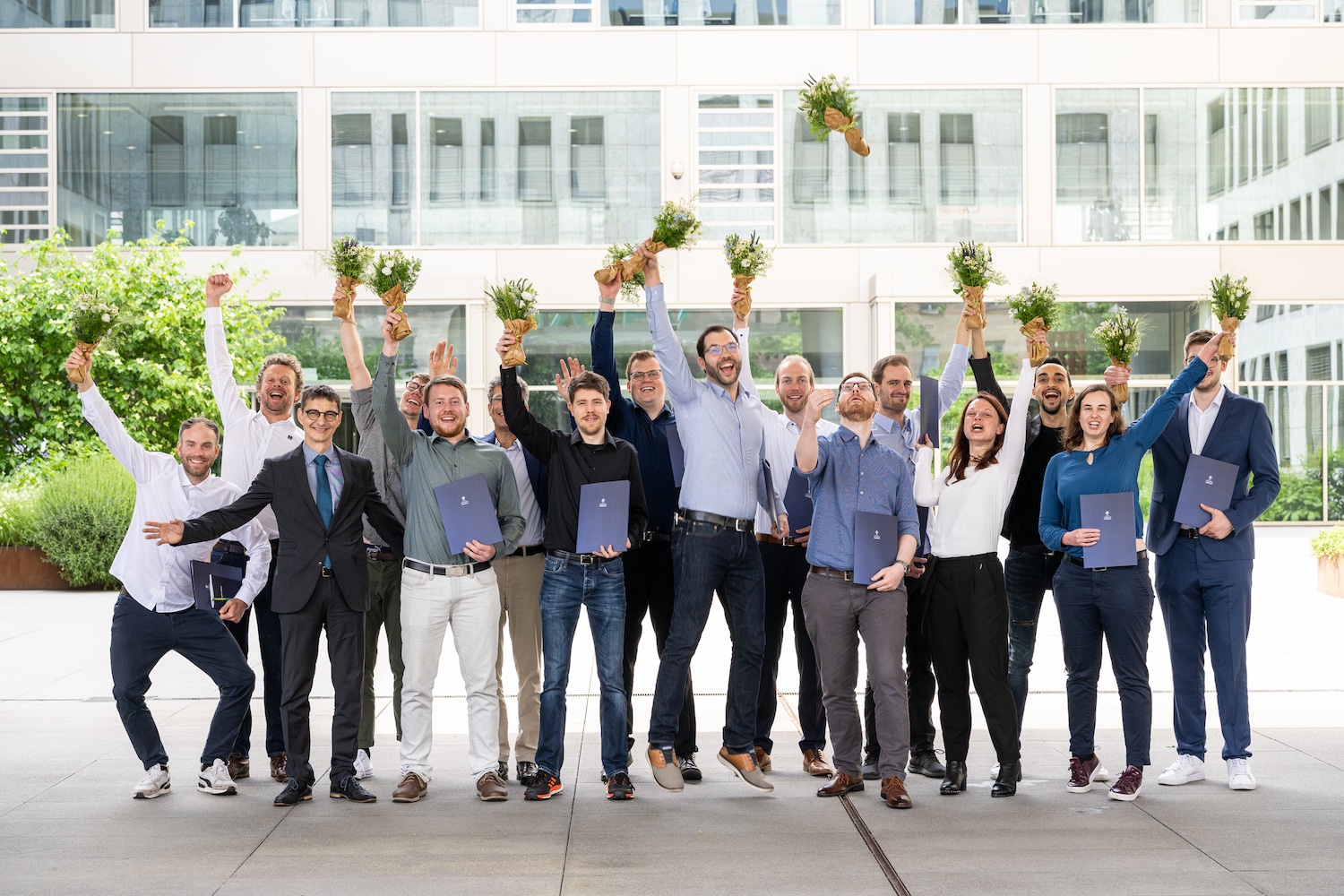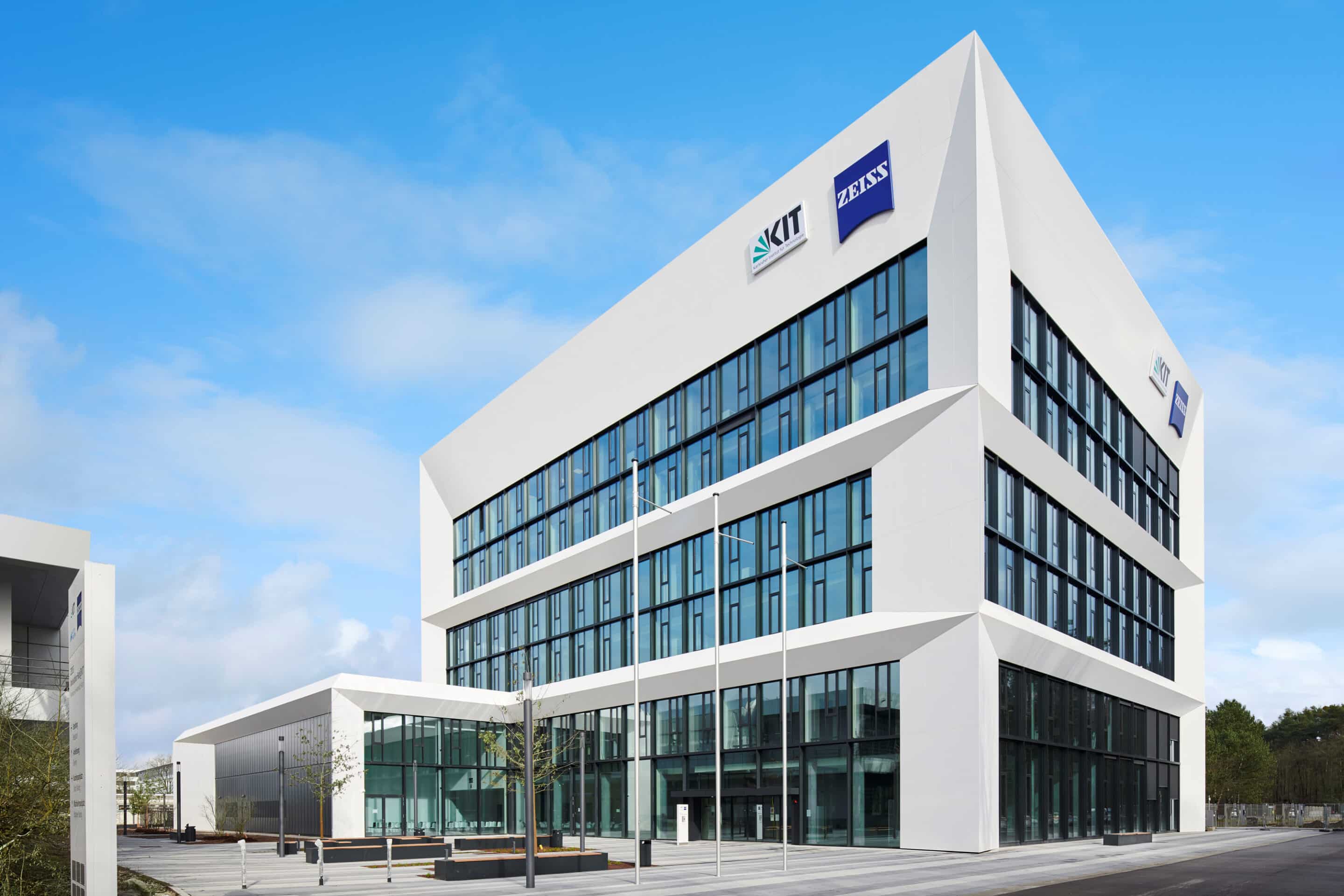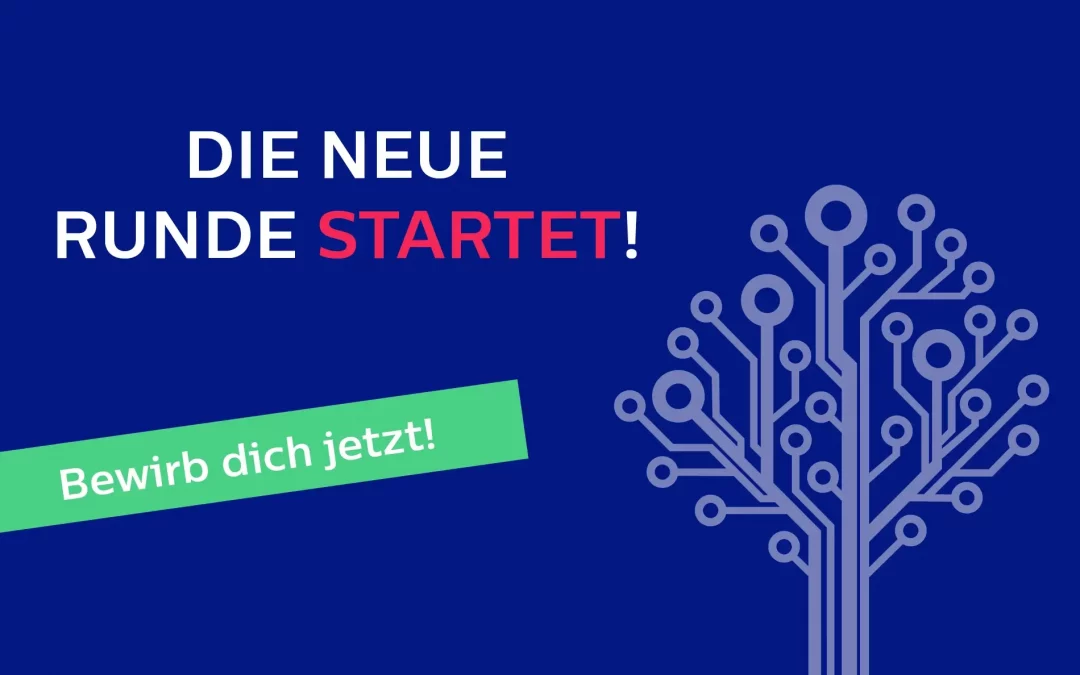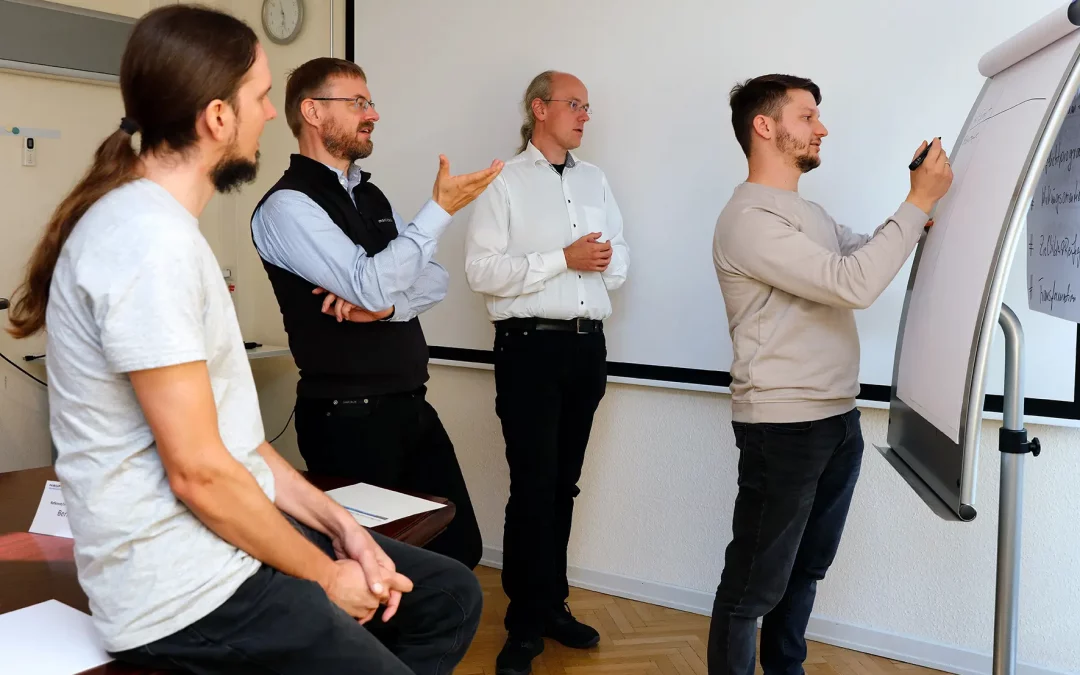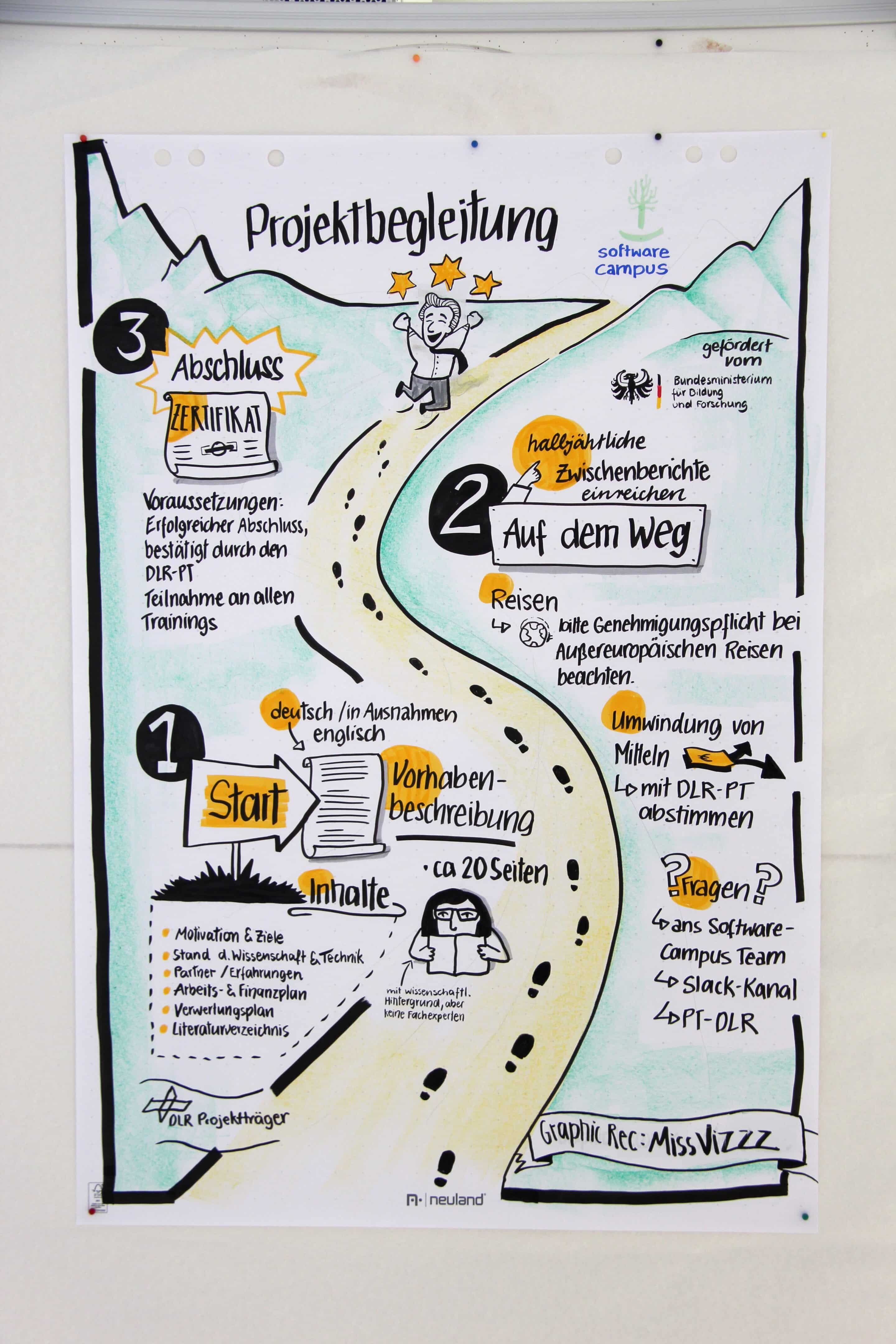This year’s Digital Summit, which took place on December 3 and 4 in Nuremberg, was primarily dedicated to the topic of Artificial Intelligence (AI). At the annual gathering politics, business and research come together intending to advance digital development. As in the previous years, Software Campus was represented with an information stand. A special highlight was the participants’ demonstration of how innovation processes take place – “Innovation in time lapse”. Doctoral candidates of five universities and research partners were on site and worked together on a question by partner Merck: What could a self-learning system look like that would support doctors to detect brain tumors?
Based on agile software development methods a mockup, an MVP (minimum viable product) and a prototype were developed within 24 hours, which were further developed after feedback rounds with Merck. Participants from TU Berlin, TU Munich, University of Stuttgart, TU Dresden and the DFKI began the development in the morning before the summit (3.12.). On the main day of the summit (4.12.) the functioning product was then presented to Federal Minister of Education Anja Karliczek. After a short explanation of the intention and application of the tool, the Federal Minister tested it herself and also used the opportunity to start a conversation with the participants and learn more about their responsibilities in the projects and their motivation. She said “I am truly amazed by how rapidly the participants let an idea grow. It is phenomenal that such high-quality AI-based products were created in such a short time”.
Prof. Steven Hildemann, Chief Medical Officer of Merck KGaA, whose division formulated the question, also attended the presentation. He was especially impressed by the way that the participants set up the self-learning system: With this tool the user compares image data which are annotated by ten different algorithms. Based on this the algorithm, which works most accurately in the respective case and can support cancer diagnosis in the future, can be identified. “The product we developed on the one hand supports the doctor in the detection of brain tumors and on the other hand creates transparency regarding the workings of AI”, said Oliver Schoppe, participant from TU Munich. The goal was to make the main topic of the Summit more approachable to the visitors while showing how agile software development and teamwork can be achieved.
